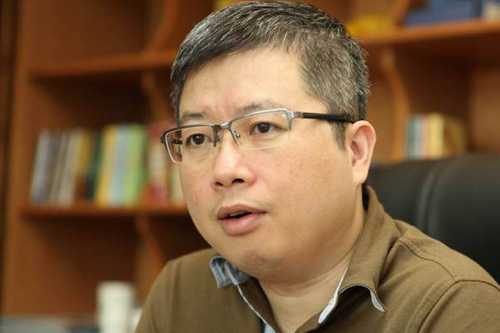PM asks press to intensify fight against fake news
Workshop on fake news set for June 19
Vietnam steps up fight against fake goods online
 |
| Nguyen Thanh Lam. — Photo nld.com.vn |
What do you think of social media users who share more bad and fake news than good news?
This is a common issue internationally nowadays. I don’t think people who share fake news are all bad people, even if they know that the news they share is bad news. For some major social networks, their editorial boards know about the problem, but still they have not taken actions to prevent it. The reason is very simple, the more readers, the more revenue the networks will receive. This is a headache for authorities on how to deter the spread of fake news, particularly news that harms society.
Some fake news is free and some costs money, used to slander enterprises or Party and Government policies. How do we deal with this?
To answer this, I think we have to answer the question “Why do readers pay for fake news and who benefits from it?” In my opinion, there are issues we should look at – the news distributor’s motivation and their target readers. For example, the author may pay a certain sum to Facebook to boost their post. The second reason, for certain Facebookers, is their tendency to frequently update their newsfeed with news of interest for others to read.
It is undeniable that social networks have been used to spread fake news. How do you respond to that?
It is easy to detect fake news with bad intentions from suspicious websites. However, nowadays, a piece of news which may appear in a newspaper could then be later reprinted in other newspapers or websites without being checked whether the news is genuine or fake.
However, many research papers on “fake news” have come to a conclusion that not all fake news is entirely fake – sometimes it is only a part of the news is fake.
It is a challenge for the readers to identify good news from fake news. Should Vietnam establish a technology company with a specific mission to detect fake news?
Everyone can check whether the news that they have read is authentic or not by reading that piece of news from other media outlets, including social networks or from other newspapers. However, in my opinion, people using the media network are able to identify genuine news from fake news – either from authentic newspapers or social networks.
What measures will help the official media win in the war against fake news?
The focal point in fighting against fake news has been assigned to the Ministry of Public Security in co-operation with the Ministry of Communication and Information and some other ministries. Regarding national policy, we already have the Law on Cyber security and in terms of technology, we have worked closely with organisations as well as cross-border social networks and demanded they respect Vietnamese Law on Cyber security. For example, Vietnam has evidence showing that Facebook has been paid to distribute news, including fake news.
Or in the fight against fake news, we need the support of the general public including social network users. We have called on them not to share any piece of information they are unsure is authentic.
In the fight against fake news, is it crucial that the mainstream media has a strong foothold in society?
Many people have argued that we don’t need the mass media. However, the press helps its readers to have a deeper look inside the story from different perspectives or angles.
What’s more, in the course of development, the mass media needs support from its audience, including two-way communication between the media outlets and their audience to make sure the news is authentic, objective and independent.
VNS
 Nguyen Thanh Lam, director general of the Authority of Broadcasting, TV and Electronic Information, under the Ministry of Information and Communications, talks to the newspaper Young People on the fight against fake news in Vietnam.
Nguyen Thanh Lam, director general of the Authority of Broadcasting, TV and Electronic Information, under the Ministry of Information and Communications, talks to the newspaper Young People on the fight against fake news in Vietnam.